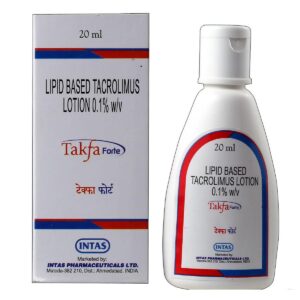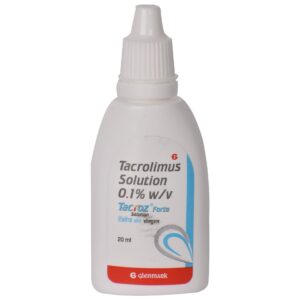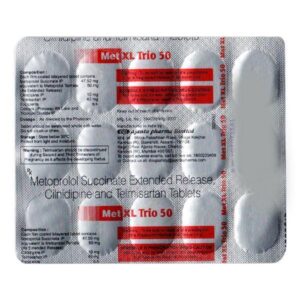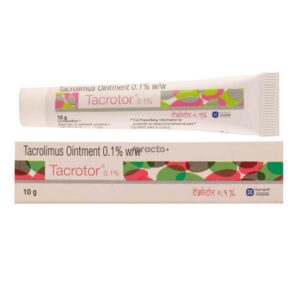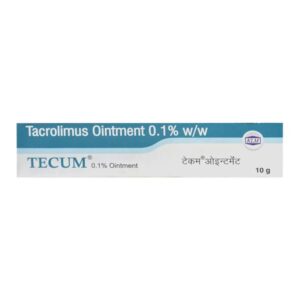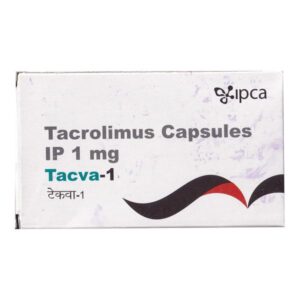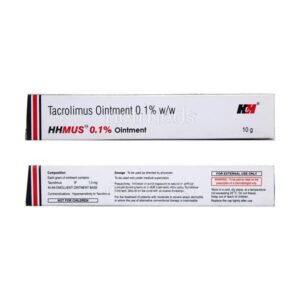TACROLIMUS
TACROLIMUS: Tacrolimus is a medication that belongs to a class of drugs called calcineurin inhibitors. It is primarily used to prevent organ rejection in patients who have received a liver, kidney, or heart transplant.
The mechanism of action of tacrolimus involves blocking the activity of calcineurin, a protein that is responsible for activating T-cells in the immune system. By inhibiting calcineurin, tacrolimus prevents the release of cytokines and other immune factors that contribute to the rejection of transplanted organs.
Tacrolimus is available in oral and injectable forms. The dosage varies depending on the patient’s weight, age, and the type of transplant. It is usually started at a higher dose immediately after transplantation and then gradually reduced over time. The dose should be individualized by the healthcare provider based on regular measurements of tacrolimus levels in the blood to ensure therapeutic efficacy and avoid toxicity.
Like any medication, tacrolimus can cause side effects. Common side effects include trembling, headache, increased blood pressure, diarrhea, nausea, and loss of appetite. More serious side effects may include kidney problems, high blood sugar, increased susceptibility to infections, and neurotoxicity, which can present as confusion, tremors, or seizures. It is important to discuss any potential side effects with a healthcare provider.
Tacrolimus can interact with other medications, particularly those that affect liver enzymes. It is crucial for patients to inform their healthcare provider about all the medications they are taking to avoid any potential drug interactions.
Overall, tacrolimus is an important and effective immunosuppressant drug used to prevent organ rejection in transplant recipients. However, careful monitoring and communication with healthcare providers is essential to ensure the appropriate dosage and manage any potential side effects.

